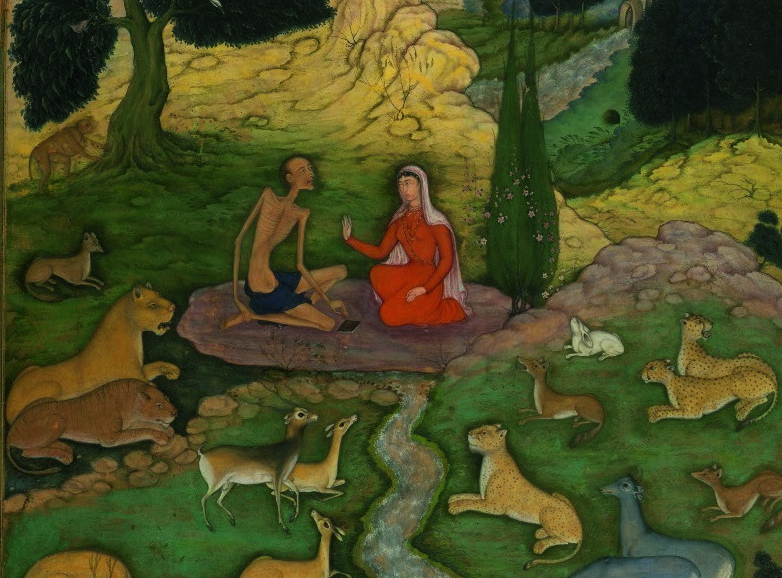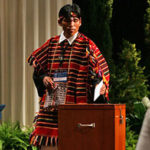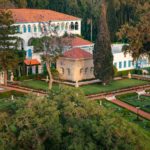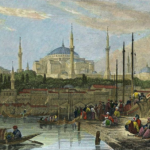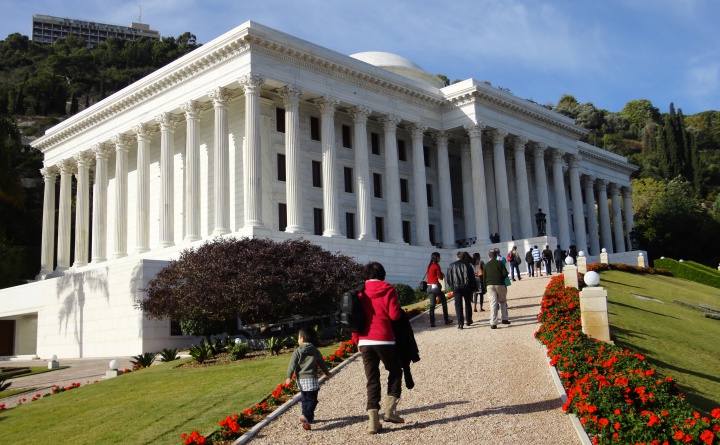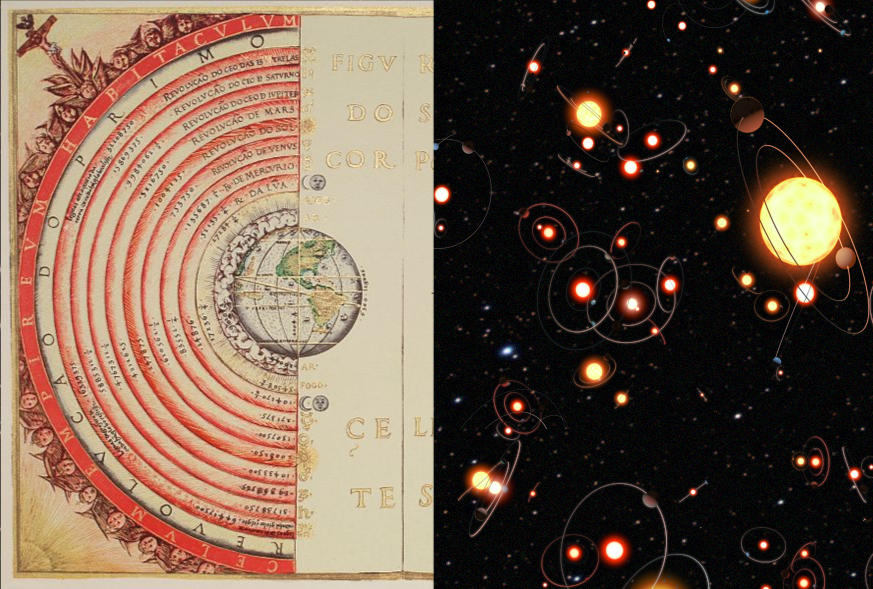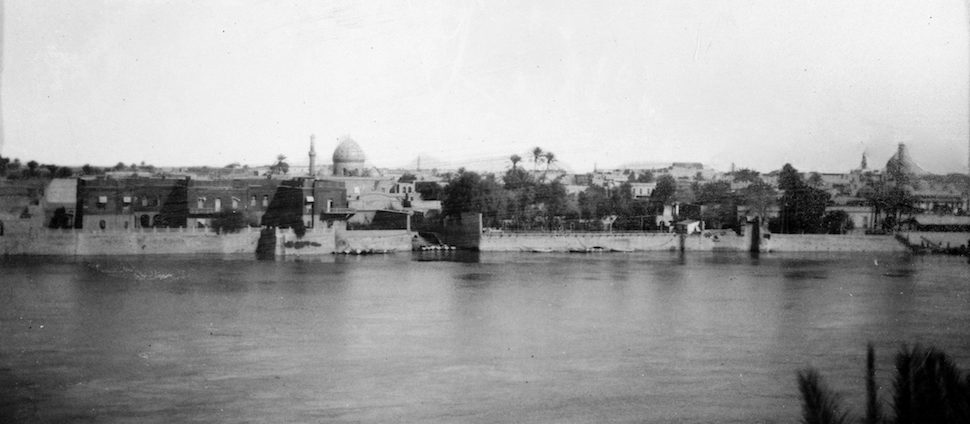
The Miracle of Baghdad
 If we look in the Gospels or in the Quran we find ample evidence of the opposition of the religious hierarchies of the day to Jesus and Muhammad respectively. Again it was so in Bahá’u’lláh’s day. As we have seen before it is a tragic pattern of history that when the truth of a new prophet comes – very few are able to recognise it and those most concerned with religion are the most determined to “put out the light”. In Baghdad, some of the religious scholars (ulama) were continually agitating to cause some harm to Bahá’u’lláh. At one point they threatened jihad, at another they pressed upon the Governor that Bahá’u’lláh should be exiled further away.
If we look in the Gospels or in the Quran we find ample evidence of the opposition of the religious hierarchies of the day to Jesus and Muhammad respectively. Again it was so in Bahá’u’lláh’s day. As we have seen before it is a tragic pattern of history that when the truth of a new prophet comes – very few are able to recognise it and those most concerned with religion are the most determined to “put out the light”. In Baghdad, some of the religious scholars (ulama) were continually agitating to cause some harm to Bahá’u’lláh. At one point they threatened jihad, at another they pressed upon the Governor that Bahá’u’lláh should be exiled further away.
One day they decided to send one of their number, Mulla Hasan-i-Amu to meet with Bahá’u’lláh and to pose a number of questions to him. The scenario echoes the task given to Nicodemus by the Sanhedrin in the time of Jesus.
After posing his questions, to which he received satisfying replies, Mulla Hasan revealed the real purpose of his mission.
We recognise your knowledge is without equal, and it is known that you have not studied in any of our schools. But wisdom and righteousness are not enough. We ask you to show us a miracle so that we may be satisfied of your mission.
Bahá’u’lláh did not reject their request. Although observing the inappropriateness of human beings seeking to test God, Bahá’u’lláh said he would agree to their request on the condition that if he performed the miracle they would all acknowledge him and accept the truth of his mission.
The ulama must assemble and with one accord choose one miracle, and write that after the performance of this miracle they will no longer entertain doubts about me, and that all will acknowledge and confess the truth of my Cause. Let them seal this paper and bring it to me. If the miracle is performed, no doubt will remain. If not I will be convicted of being an imposter.
Mulla Hasan was entirely satisfied with this response. “There is no more to be said.” He left and returned to his colleagues.
Yet when the ulama gathered they consulted together and said “This man is an enchanter and he will perform and enchantment, and then we shall have nothing more to say.” They thus became fearful and did not agree on a miracle to be performed by Bahá’u’lláh and made no reply.
Mulla Hasan could not bear to face Bahá’u’lláh and sent him a message saying he was ashamed of the conduct of his colleagues. Mulla Hasan was however to widely tell the story wherever he went. Shoghi Effendi records Bahá’u’lláh’s response.
“We have,” Bahá’u’lláh is reported to have commented, when informed of their reaction to this challenge, “through this all-satisfying, all-embracing message which We sent, revealed and vindicated the miracles of all the Prophets, inasmuch as We left the choice to the ‘ulamás themselves, undertaking to reveal whatever they would decide upon.”[1]
There was another occasion on which Bahá’u’lláh offered to perform a miracle. It occurred years later when he, his family and followers, including women and children were being exiled to Akka. Due to the suffering of the women and children Bahá’u’lláh asked that a message be sent to the Sultan as follows:
I request thee to submit to His Majesty the Sulṭán, that for ten minutes this Youth be enabled to meet him, so that he may demand whatsoever he deemeth as a sufficient testimony and regardeth as proof of the veracity of Him Who is the Truth. Should God enable Him to produce it, let him, then, release these wronged ones, and leave them to themselves.[2]
Again he received no reply.
Despite such events, Bahá’u’lláh discouraged his followers from attributing miracles to him.
We entreat Our loved ones not to besmirch the hem of Our raiment with the dust of falsehood, neither to allow references to what they have regarded as miracles and prodigies to debase Our rank and station, or to mar the purity and sanctity of Our name.[3]
The miracle of Baghdad is the miracle of distinguishing truth from error. It is proof that those who attacked Bahá’u’lláh were not sincere in their search for the truth. In the second, it is proof that those who presumed to judge him, were not interested in justice. They condemned him without the opportunity of even being heard and they were indifferent to the suffering their decisions imposed on the innocent.
(This article is the 113th in a series of what I hope will be 200 articles in 200 days for the 200th anniversary of the birth of Bahá’u’lláh. The anniversary is being celebrated around the world on 21 and 22 October 2017, The articles are simply my personal reflections on Bahá’u’lláh’s life and work. Any errors or inadequacies in these articles are solely my responsibility.)
Sources: The account presented here is largely drawn from Abdu’l Baha’s recollection of the events concerned. The account appears in H.M. Balyuzi’s, Bahá’u’lláh The King of Glory, pp 144 et seq.
Image Credits: Baghdad c. 1930 Photographer: Effie Baker Reproduced under licence copyright Baha’i International Community.
